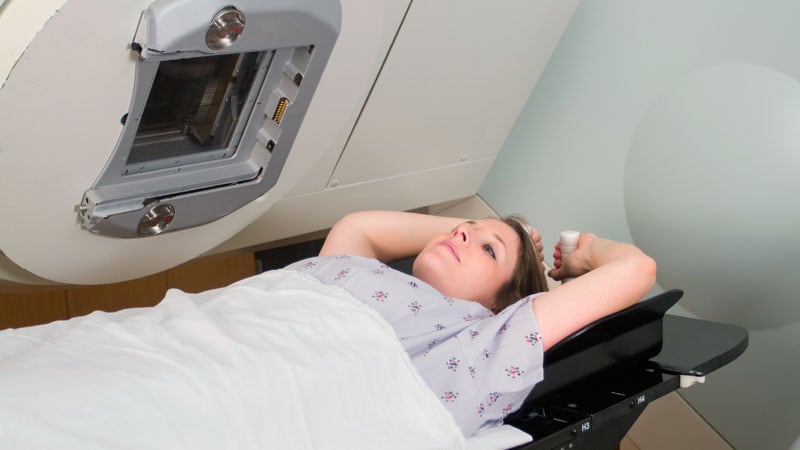The study covered in this summary was published in Research Square as a preprint and has not yet been peer reviewed.
Key Takeaway:
-
Radiation-induced sarcoma (RIS) is a rare but aggressive complication of radiotherapy, and occurs at a higher rate among patients with breast cancer than those with other solid tumors.
Why This Matters:
-
Although survival is favorable, with a 2-year disease-specific survival of 88.9%, a significant proportion of patients recur locally after maximal treatment and require salvage therapy to improve outcome.
Study Design:
-
This is a study from McGill University in Montreal, Canada, a center specializing in sarcoma management that employs a multidisciplinary approach.
-
Data were collected for 8700 patients with breast cancer treated from 2000 to 2020
-
A total of 19 patients with breast RIS were identified: 11 were angiosarcomas (57.9%), 3 osteosarcomas (15.8%), 2 carcinosarcomas (10.5%), 2 undifferentiated pleomorphic sarcomas (10.5%) and 1 high-grade leiomyosarcoma (5.3%).
-
All patients underwent surgery; three patients received systemic therapy, and six patients received re-irradiation as salvage treatment.
Key Results:
-
The median age at RIS diagnosis was 72 years (range 39-82) and median latency period for development of RIS was 112 months (range 53-300)
-
Overall, five patients had local recurrence and one patient developed distant metastases.
-
Median time to progression was 7 months (range 4-14). Progression-free survival at 2 years was 56.1% (95% CI, 37.4% – 84.4%).
-
At 2 years follow-up after sarcoma diagnosis, overall survival was 88.9% (95% CI, 75.5% – 100%).
Limitations:
-
Data are from a single institution and RIS is rare, so the numbers are small.
-
The small numbers make it difficult to draw conclusions associated with poorer outcomes.
-
Data were missing for two patients who received radiation treatment at an outside clinic.
-
Only data from electronic heath records were included, potentially leaving out data on paper charts that were used in the early 2000s.
Disclosures:
-
No funding was reported.
-
The authors have no relevant financial or nonfinancial interests to disclose.
This is a summary of a preprint research study, “Radiation-induced sarcomas of the breast: A review of a 20-year single-centre experience,” led by Vanessa Di Lalla, MD, of McGill University Health Centre, Montreal, Canada. The study has not been peer reviewed. The full text can be found at researchsquare.com.
For more from Medscape Oncology, join us on Twitter and Facebook
Source: Read Full Article
